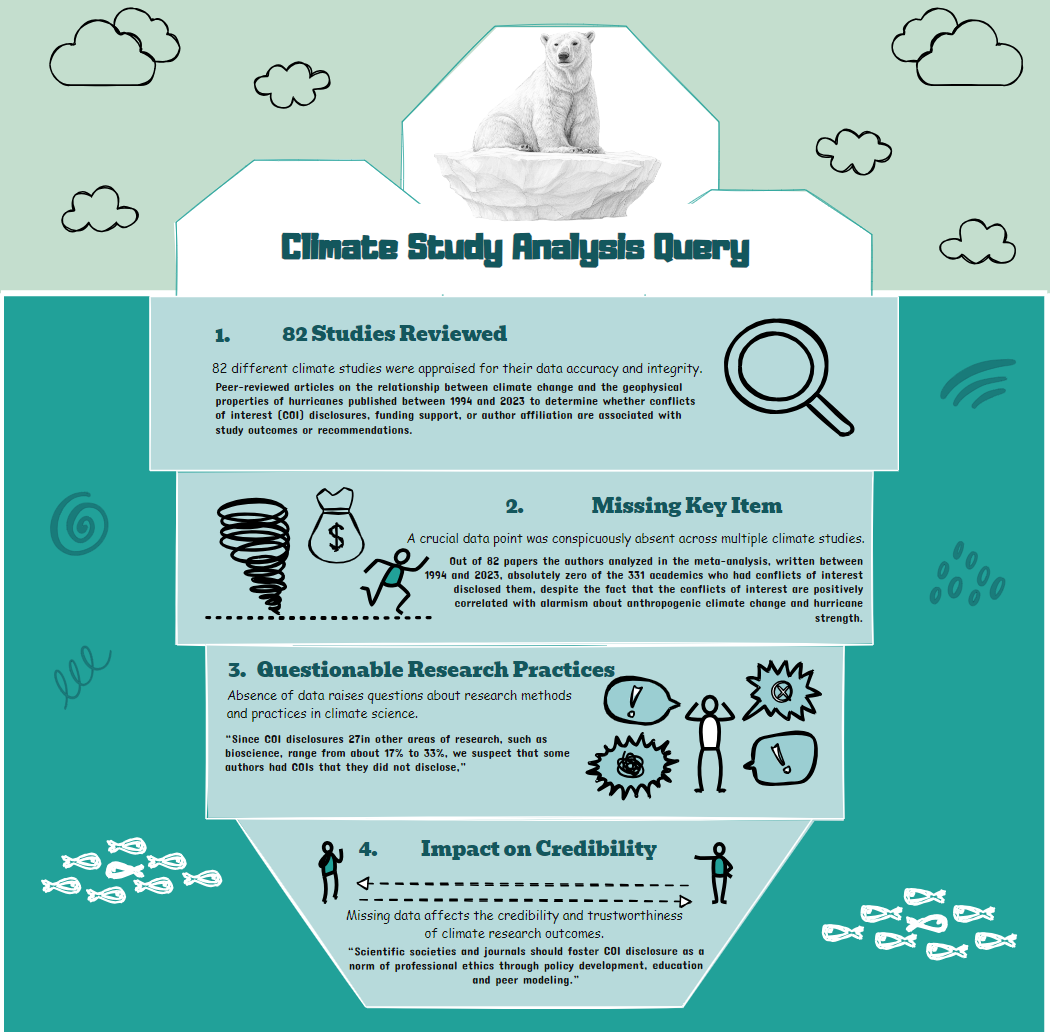Researchers Notice Very Special Item Missing from 'Climate Science' Studies
A critique of transparency in climate science
notes specifically targeting 82 peer-reviewed studies published between 1994 and 2023 that explore the connection between climate change and hurricane characteristics, such as frequency, intensity, or duration. These papers, authored by a total of 331 researchers, are scrutinized for a notable omission: not a single author disclosed a conflict of interest (COI), despite evidence suggesting potential biases tied to funding sources. The Western Journal frames this as a systemic flaw, implying that the absence of COI statements could hide influences that skew findings toward alarmist conclusions—namely, that climate change significantly worsens hurricanes.
Drawing on a separate study which found a correlation between funding from non-governmental organizations (NGOs) and research outcomes that emphasize a stronger climate-hurricane link; This raises the possibility that financial backing from advocacy groups, which often have vested interests in promoting climate action, might incentivize researchers to align their conclusions with those agendas. The article suggests that such funding dynamics, if undisclosed, erode the objectivity expected in scientific inquiry. It contrasts this with an expectation that researchers should report COIs—standard practice in many fields—to allow scrutiny of whether personal or financial incentives influenced their work.

A key point highlighted is the temporal distribution of these studies: 61% were published after 2016, a period the article ties to heightened media coverage and political focus on climate change following events like Hurricane Sandy or the Paris Climate Agreement. This surge, it argues, might reflect not just scientific curiosity but also external pressures to produce research that supports narratives of escalating climate impacts—narratives that, in turn, justify aggressive policy responses. The Western Journal positions this as evidence of a broader politicization of science, where research might be "rigged" to serve ideological or economic ends rather than pure truth-seeking.
The lack of COI disclosures may not be a mere oversight but a deliberate gap that undermines trust in climate science. It implies that these studies, by failing to meet transparency standards, contribute to a cycle where questionable research fuels public alarm, which then drives funding for more of the same. While it doesn’t outright dismiss the climate-hurricane link, it casts doubt on the integrity of the evidence, framing the omission of COIs as a red flag for bias that could exaggerate threats for political leverage.
Dig In WesternJournal OSF WesternJournal
